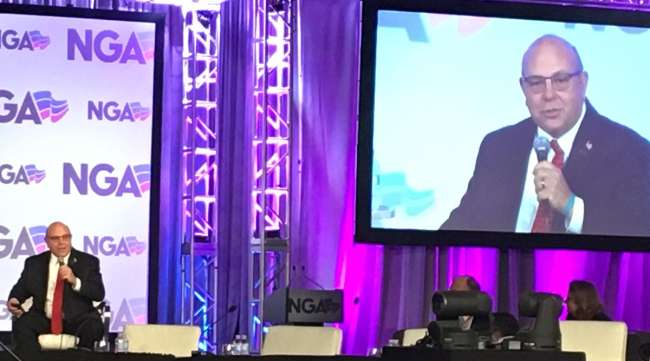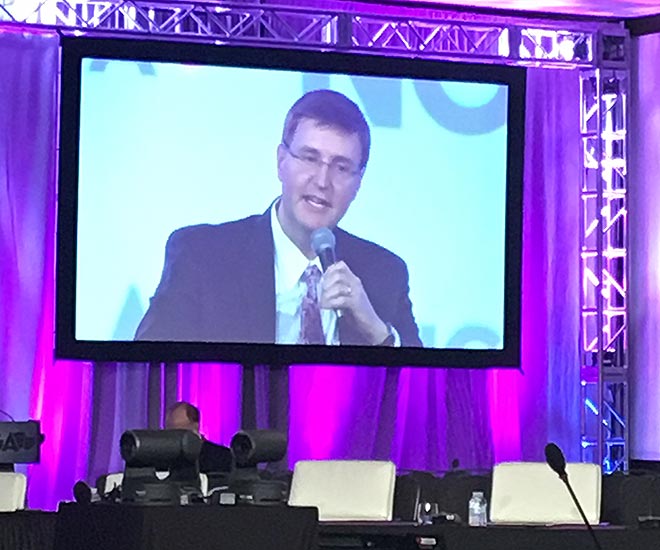Staff Reporter
Agriculture Industry Eager for Action on Infrastructure

WASHINGTON— The fate of American agriculture hinges upon the strength of the nation’s infrastructure, according to Zippy Duvall, president of the American Farm Bureau Federation.
Duvall, a third-generation farmer who specializes in beef cattle and poultry, stressed the importance of delivering infrastructure projects to support farmers and the movement of goods. Beef cattle, as opposed to dairy cattle, are raised for meat production. Duvall spoke at the National Governors Association’s winter meeting Feb. 24.
“Infrastructure’s so important. Road, bridges, dams and locks are so important,” Duvall said. “What sets us apart from the rest of the world is our infrastructure. Yes, it is crumbling, but we have a president who wants to rebuild it.”
MORE FROM NGA: Shipping stands to benefit from blockchain
President Donald Trump unveiled his infrastructure proposal, which calls for $1.5 trillion in infrastructure investments over 10 years, Feb 12.
Overall, $200 billion in direct federal funds would be sought to achieve the plan’s desired top line. From that, $100 billion would be made available for an incentives program for states and municipalities, $50 billion would be allocated for rural projects through block grants to governors, $20 billion would be dedicated for a “transformative projects program” for futuristic contrivances, $20 billion would be used to enhance federal credit programs and broaden the use of private activity bonds and $10 billion would back the creation of a Capital Financing Fund.
States can find flexibility with their infrastructure projects in the portion of funding allotted to rural America, according to Ray Starling, special assistant to the president for agriculture, agricultural trade and food assistance.

Starling by Eleanor Lamb/Transport Topics
“The beauty of that is some states may choose water infrastructure improvements, they may choose to do a deepening of a port [or] they may choose to do a four-lane highway,” Starling said. “Obviously it’s important for us for agriculture because we need these roads to get products out of the country. You’ve got a president who knows something about construction.”
Preserving the North American Free Trade Agreement is another central priority for the agriculture industry, according to Duvall. Trump has repeatedly suggested he may withdraw the United States from NAFTA, stating that the pact harms American manufacturing.
NAFTA has endured six rounds of negotiations, which are likely to continue as Mexico prepares to hold presidential elections in July and the U.S. gets ready for midterms in November.
Although Duvall acknowledged that some areas of NAFTA could be reworked, he emphasized agriculture’s reliance on the pact. He noted that 95% of the people in the world live outside U.S. borders, and free trade is necessary to connect with them.
“There are some areas in NAFTA that need some work, but on the whole that’s a wonderful trade tree for us and we don’t want to do any harm to it. NAFTA is so important. We still have a lot of faith in this administration,” Duvall said. “We’re very sensitive to trade. We’re always the one that gets hit first.”




